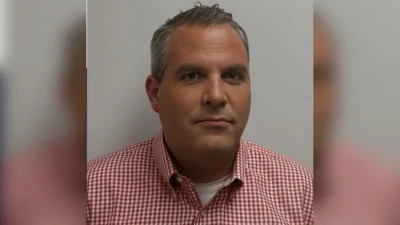Advocates for Highway and Auto Safety urge Iowa to enact laws to improve safety. | Pixabay
Advocates for Highway and Auto Safety urge Iowa to enact laws to improve safety. | Pixabay
Iowa roads have been more dangerous since the start of the COVID-19 pandemic, following a national trend. Advocates for Highway and Auto Safety has ranked Iowa as a “yellow” state, saying it needed to exercise caution. It also urged the Hawkeye State to enact laws to improve safety.
The Advocates, in its 19th annual edition of the Roadmap of State Highway Safety Laws released in January, called on the U.S. Department of Transportation and state governments to put the brakes on dangerous driving across the country.
“During the first six months of 2021, more than 20,000 people were killed in motor vehicle crashes, the most during this time period since 2006,” the report stated. “This represents a nearly 20% increase in deaths over the same period in 2020 and is the largest such spike ever recorded by the National Highway Traffic Safety Administration Fatality Analysis Reporting System.”
Its recommendation for Iowa are:
- Primary enforcement seatbelt law (rear)
- All-rider motorcycle helmet law
- Rear facing through age 2 law
- Booster seat law
- Graduated driving license requirement – Minimum age 16 for learner’s permit
- Graduated driving license requirement – Stronger supervised driving provision
- Graduated driving license requirement – Stronger nighttime restriction provision
- Graduated driving license requirement – Passenger restriction
- Graduated driving license requirement – Age 18 for unrestricted license
Steve Gent, director of traffic and safety for the Iowa Department of Transportation, told Hawkeye Reporter that 343 people died on Iowa roads in 2020, and 354 deaths were reported in 2021. That number could increase if people who were injured in crashes late in the year die in 2022, Gent said.
He said the new year was off to a slightly better start, with 13 fatalities reported by Jan. 27. Gent said the average number of fatalities by that date is 16. But one multiple fatality could change that.
On average 100 people die every day on U.S. roads. The Advocates offered 16 optimal laws for states to adopt to make roads safer. The report detailed ways to increase occupant protection, child passenger safety, assist novice teen and young adult drivers, reduce impaired driving and distracted driving.
The report gave every state and Washington, D.C., a rating based on five categories (occupant protection, child passenger safety, teen driving, impaired driving and distracted driving). It also provides an overall grade of “green,” “yellow” and “red” on how they are doing in enacting the recommended 16 laws.
Seven states — Rhode Island, Washington, Delaware, Maine, Oregon, California and Louisiana — received green, the highest score, while 31 states received yellow ratings.
Nevada, which enacted a law requiring child passengers remain in a rear-facing safety seat until age 2 or older and that children use a booster seat until 57 inches in height, was moved from red to yellow, as was Wisconsin, which extended the number of supervised hours for teen and inexperienced drivers to 50.
Eleven states, including Missouri, Wyoming, Montana, Arizona, Florida, Nebraska, New Hampshire, Ohio, Vermont, Virginia and South Dakota, were given the lowest red rating.
Gent said he can’t push for new traffic laws in Iowa, even if the ones proposed by the Advocates make sense.
"No, no, no. First of all, as a government employee, I work for the Iowa DOT. Every one of these things that they are recommending are laws,” he said. “Those have to be done by our legislature, by our governor, through the legislative process. State employees, government employees cannot lobby. So no matter what, I think it doesn't do any good. I can't change any of these. Our legislature can.”
Gent thinks there are many valid points in the report.
“Yes, clearly they would all be great laws to have in Iowa,” he said. “But ... very few states are getting their green rating. ... I'm a citizen of this state, and it is what it is. I can't make that change.”
A major reason for the increase in fatalities and serious crashes is higher speeds. Drivers are more reckless.
“That is absolutely true, especially, once the pandemic hit, traffic dropped at least 40% everywhere, so it was a significant change,” Gent said. “And, yes, people did drive faster because they just didn't see other vehicles out there and certainly didn't feel this sense that enforcement was going to be out there either.”
Alcohol use increased dramatically in Iowa since the pandemic, KCRG reported Dec. 17, and that’s being noticed on the roads.
“That’s part of the issue, and that’s part of the phenomenon that’s happening,” Gent said. “We're all stressed out from the COVID thing and people are using alcohol. ... People are frustrated, and they get in their car and they feel like, you know, they act out there, and they use that little freedom moment and they do what they want on the roads, which unfortunately is not a good thing for safety.”
Mothers Against Drunk Driving National President Alex Otte said reports over the past two years offer a sobering view of the dangers on highways and streets.
“Alcohol and drug impairment, speeding, not wearing seat belts are cited as the leading contributors to more crashes, more injuries and more deaths at a time when fewer cars are on the road,” Otte said. “This is a public safety crisis. State legislatures can do their part by passing laws that keep their communities safe and spare families the trauma of being impacted by someone else’s choice to drive impaired.”
Iowa is among many states dealing with this problem.
“There absolutely is, and we’ve talked to our counterparts in so many other states that have seen increased fatalities the last two years. It's a nationwide trend,” Gent said. “But the big issues are impaired driving and that's approximately 30% of fatalities, highway fatalities, are caused by an impaired driver, whether it's alcohol or drugs or prescription drugs."
He said 94% of front-seat passengers report wearing seat belts. It is primarily that 6% who refuse to do so who are dying.
Gent said if he was God, everyone would drive safely and sober. But vehicles are driven by human beings, and they make mistakes.
Advocates for Highway and Auto Safety, founded in 1989, is an alliance of public health, safety, consumer and law enforcement organizations, insurers and insurance agents that promotes highway and auto safety through the adoption of safety laws, policies and regulations.




 Alerts Sign-up
Alerts Sign-up